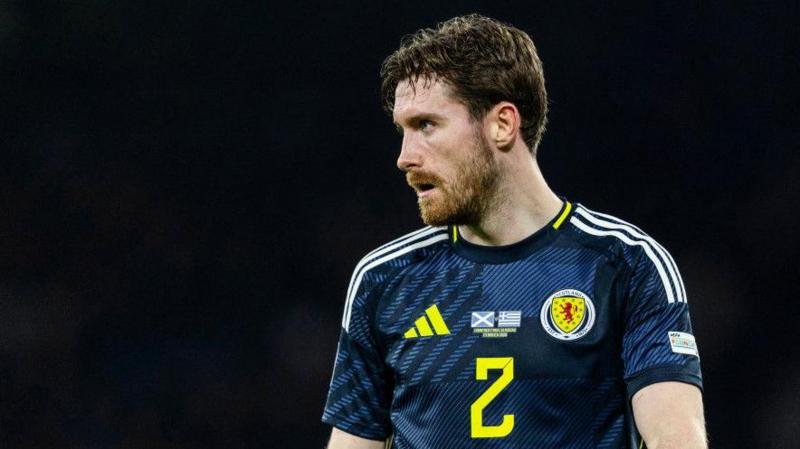Ralston, Tierney Out for Scotland's Crucial Double Header!




In a significant blow to Scotland's World Cup qualifying campaign, Celtic stars Anthony Ralston and Kieran Tierney have both been forced to withdraw from the squad due to injuries ahead of the crucial matches against Denmark and Belarus. This development could have substantial implications for the team's dynamic and strategy, as both players are essential components of Scotland's defense.
Anthony Ralston, who has been enjoying a robust season with Celtic, is known for his vigorous defending and ability to surge forward, qualities that have made him a valuable asset for both his club and country. His absence is particularly untimely, given his recent form and the critical nature of the upcoming games. The right-back's withdrawal is understood to be related to a muscle strain that he potentially exacerbated during Celtic's last game. This setback is a disappointment for the player, who has been keen to solidify his place in the national setup.
Kieran Tierney, another key figure for Scotland, is also sidelined due to a lingering knee issue that has seen him miss several matches for Celtic this season. Known for his versatility, Tierney can operate both as a central defender and a left-back, making him extraordinarily valuable to Scotland's tactical flexibility. His ability to drive forward and deliver precise crosses while also remaining solid defensively has made him one of the first names on the team sheet when fit. His absence will not only be a tactical blow but also a psychological one, as Tierney's fighting spirit and leadership on the field are qualities that his teammates often rally around.
The withdrawals of Ralston and Tierney pose a significant challenge for Scotland's head coach, Steve Clarke, who now has to reconfigure his defense at a time when stability is crucial. The defensive solidity that Tierney and Ralston provide is difficult to replicate, and finding the right balance in their absence will be key to Scotland’s success in the upcoming qualifiers.
To counter these losses, Clarke might need to look at alternative formations or perhaps bring in fresh faces who can step into these considerable breaches. The situation offers an opportunity for other squad members to step up and make their mark on the international stage. Players like Nathan Patterson and Greg Taylor could see more playing time, and their ability to adapt to the demands of international football will be under scrutiny.
Scotland's opponents in the qualifiers, Denmark and Belarus, present different challenges. Denmark, in particular, is a strong side, having shown their mettle in recent international tournaments. The Danes are known for their cohesive team play and robust defense, qualities that Scotland must be ready to counter without two of their main defensive stalwarts. Belarus might not pose the same level of challenge on paper, but playing away in potentially hostile conditions could complicate matters.
The Scottish team will need to show resilience and tactical nous in navigating these matches. The squad's depth and the players' ability to rise to the occasion will be critically important. While the absence of Tierney and Ralston is a setback, it also serves as a test of the team's character and the efficacy of their preparation.
Fans will be hoping that the rest of the team can pull together, showing that they can handle adversity and still perform on the biggest stage. Success in these games would not only bolster their qualifying hopes but also demonstrate that Scotland has the depth and quality to compete, even without some of their key players. The road to the World Cup is often fraught with such challenges, and how Scotland navigates this particular bump will be telling of their potential to make it to the finals in Qatar. For now, all eyes will be on Steve Clarke and his squad as they prepare to tackle these crucial qualifiers without two of their main men.